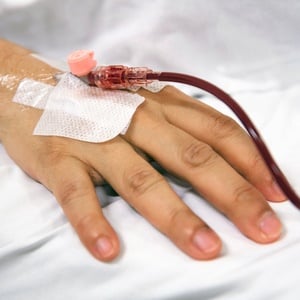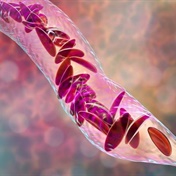
Anaemia is a disorder that occurs when there are problems with the production of haemoglobin (the red protein in your blood responsible for transferring oxygen) in the body. According to pathologist and haematologist Dr Alicia Els, iron-deficiency anaemia is the most common form of anaemia, with anaemia of chronic disease (ACD) the most common anaemia in hospitalised patients.
Anaemia is usually caused by blood loss, but can also be caused by a lack of iron in the diet. While this widely known, there are other common misconceptions about anaemia and iron deficiency:
1. If you are iron deficient, you are anaemic and vice versa
Anaemia can certainly be caused by iron deficiency. In fact, iron deficiency is the most common cause of anaemia. This, however, doesn’t mean that iron deficiency and anaemia can always be linked. There are other causes of anaemia, such as ACD and sickle-cell anaemia. These types of anaemia are not caused by nutritional deficiency.
2. If you are vegan or vegetarian, you will suffer from iron deficiency anaemia
While red meat is a common source of iron, plant foods such as leafy greens are also sources of iron. Giving up meat and dairy may increase your chances of iron-deficiency anaemia, but this doesn’t necessarily have to be the case.
Another cause of anaemia is the lack of vitamin B12 in your diet, as this vitamin plays an important role in producing red blood cells. Vitamin B12 is found in red meat, poultry and dairy products, and is generally absent in plant foods. It is therefore believed that those on vegetarian and vegan diets have a higher risk of lack of vitamin B12 and subsequent anaemia. But if you monitor your diet, talk to your doctor or nutritionist, and take a supplement, there is no reason to develop a B12 deficiency.
3. Anaemia is largely genetic
In some cases, fanconi anaemia (FA), a rare inherited blood disorder, can lead to bone-marrow failure. This is a type of aplastic anaemia that prevents bone marrow from producing enough new blood cells for your body to function normally.
Other forms of anaemia, such as sickle-cell anaemia and thalassemia, are forms of hereditary anaemias. Even though these are linked to genetics, most cases of anaemia are acquired, either through iron shortage, or illness.
4. Children are more likely to suffer from anaemia
Iron-deficiency anaemia is common among infants and children, but it’s not limited to this age group.
Women of child-bearing age are also more susceptible to iron-deficiency anaemia, but anaemia can occur any stage of life.
5. Anaemia is mostly a sign of a poor diet
While malnutrition among children is the most common cause of anaemia, types of anaemia such as sickle cell and thalassemia are not liked to diet and iron intake.
In adults, anaemia is often caused by inflammation, kidney disease, infection, cancer or bleeding gastritis.
6. You can't breastfeed if you have iron-deficiency anaemia
You can safely breastfeed even if you suffer from iron-deficiency anaemia. Discuss your diet and the use of an iron supplement with your medical practitioner.
7. You can't exercise or play sport if you have anaemia
There is no reason why children or adults with anaemia shouldn't partake in sport. While it can be challenging to do physical exercise due to the lack of oxygen caused by a lack of red blood cells, you can still exercise if you wish to do so. It is important to start slowly and listen to your body. Consult your doctor if you are unsure.
Image credit: iStock




 Publications
Publications
 Partners
Partners











